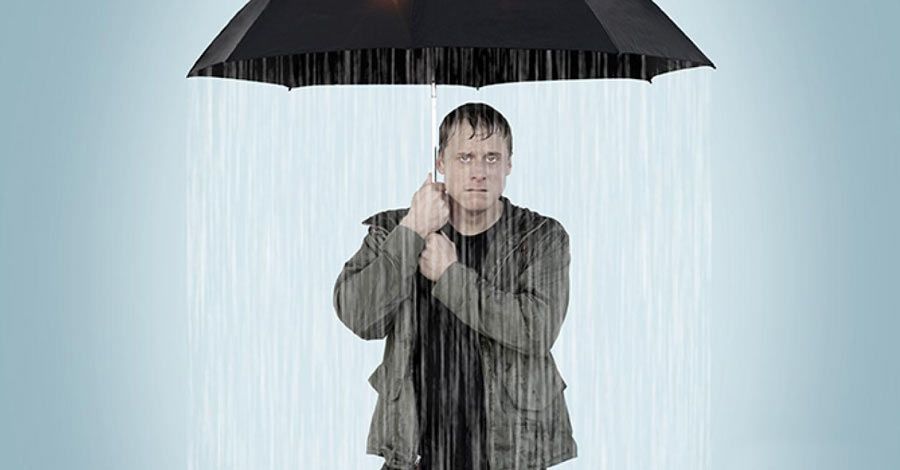From starring in the beloved Joss Whedon TV series "Firefly" to featuring as Steve the Pirate in "Dodgeball" to lending his voice to numerous animated roles like "Young Justice" and "Rick and Morty," Alan Tudyk stands as one of nerdoms most celebrated icons.
For years, he's traveled the convention circuit alongside people like his friend and "Firefly" co-star Nathan Fillion touching base with fans and participating in panels -- and most recently, he's taken some of those convention experiences and turned them into the Indiegogo funded web series "Con Man" that he not only stars in but also writes, directs and produces. He plays an actor much like himself, who once co-starred in a sci-fi series alongside Fillion -- who plays himself -- and navigates the perils of being an icon, but not quite who he wants to be.
RELATED: Alan Tudyk on "Blue Beetle-Booster Gold" Movie: "If It's Working With Nathan, I'm In"
Tudyk joined Jonah Weiland in the world famous CBR Tiki Room high above the show floor of New York Comic Con 2015 to talk about the record-breaking crowd-funded web series, one of his most bizarre convention experiences and what it was like growing up with the last name Tudyk.
On the premise of "Con Man":
Alan Tudyk: I've met a lot of people. I've seen a lot of things, and "Con Man" is sort of based on what I've learned. It's about a guy who was on a space show ten years ago who flew a spaceship -- like I did on "Firefly" -- and the captain is Nathan Fillion -- who was also the captain on "Firefly." So, there are some similarities. But where it diverges from reality is that Ray Nealy, my character, hates his life. He wanted to go on to other things but his career bottoms out and he's touring the con circuit.
He wants to be famous and he is, absolutely -- there's crowds of people who love him -- but he doesn't appreciate it because his friend Nathan Fillion actually became a star. So he looks to his career and sees what he wishes he had.
On one of his most bizarre convention moments:
There's a portrait portion of a lot of these cons. You take pictures and it's very fast. It's unnatural. "Hi, hello, how are you?" and click, and "Hi, hello, how are you?" click, and "Hi, hello, how are you?" Click. This guy who was in England, he took pictures for a little while and then he was like, "I'm sorry, we've got to stop." And he had a bucket of ice that he just set his finger in. "I'm going to need 15 minutes -- and a glass of sparkling wine." And we just waited around for him to get done until he was like, "All right, we can go again." Get a pedal or use your other finger. You're not moving around. It's just the same mark and the same spot. So, it's odd characters like that.
On the differences between Comic-Con International in San Diego and other, smaller shows:
When you got to San Diego, which is sort of the flagship now and what people measure by, that's Hollywood. Hollywood lands on San Diego now and tries to take advantage of all of those consumers. You go to a party and you have to be on the list and it's all very exclusive. Whereas when you go to a smaller con, everybody is invited. That's the best thing, I think, about cons: it's very inclusive. No matter who you are or what you do, everybody is having the same party. Whereas in San Diego, even if one year I go and I'm doing the Entertainment Weekly party and I'm invited all over, maybe next year I'm not or you don't have a publicist that year that gets you the right tickets. It's so Hollywood.
On getting harassed as a kid because of his last name:
Well, my name is Tudyk [pronounced two-dick], so yeah. [Laughs] They would call me Alan Tutti-Frutti until about fourth grade and then somebody went, "Hold on a minute... guys, listen to me. Two dick! Ha ha! We got this!" Then it was "Two-dicks," "Two-dicks in one," which actually is not bad. Double your pleasure, double your fun. So, really it was a mixed bag -- or sack.

